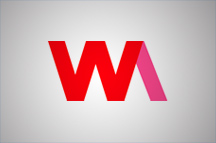After weeks of speculation, Prime Minister Rishi Sunak has used his keynote speech at Conservative Party Conference to wield the axe against HS2’s Birmingham to Manchester leg.
The announcement is the latest shift from the Prime Minister that impacts the transport sector and reiterates the prominence of transport issues as we head towards an election in 2024.
What happened at Conservative Party Conference?
HS2 cast a shadow across the Conference. Whilst rail featured heavily on the fringe – covering topics from rail reform, contracting, rolling stock and decarbonisation – the debate over HS2 predictably dominated discussion.
Leaks meant that industry, Ministers, backbenchers, and regional stakeholders all sought to make their case ahead of the announcement, with West Midlands Metro Mayor Andy Street unsuccessfully trying to fight a rearguard action. Many on the fringe and across the sector will be frustrated by how No10 has handled the comms for this announcement, especially considering reports first emerged weeks ago.
Sunak’s alternative to HS2 is the reinvestment of £36 billion into the new “Network North” plan. Spending will be spread across new road, rail and bus projects aimed to improve interconnectivity across the North and beyond. However, there is little to cheer for the rail sector with DfT subsequently confirming that only about 30 percent of the funding will go to rail, with the remainder for local transport and roads, and no new capacity for north-south rail passengers.
Whilst rail dominated Sunak’s remarks, Transport Secretary Mark Harper reiterated the government’s focus on motorists.
His ‘Plan for Drivers’ brings together 30 measures aimed at improving car journeys at expense of bus lanes, low traffic neighbourhoods and travelable 15-minute communities. It is the latest example of how the Conservatives want to project a ‘pro-car’ image, and position Labour as ‘anti-motorist’.
Other modes of transport – plane, maritime, active travel and more – were largely absent from the focus of senior politicians in Manchester.
The reaction to Conference
Sunak is realistic his announcements will not be welcomed by industry or many politically and predictably the immediate reaction has been largely negative. This was borne out by the criticism from prominent Conservative and Labour Party figures who have been quick to raise concerns and reflect doubt about the Network North alternative. On social media, for every positive post there are three negative.
Stakeholder reaction
The Prime Minister’s gamble – like with the delay on petrol and diesel cars – is that it reignites support for the Conservatives among the voting public that he needs to win over in more rural and suburban parts of the country. He will be cheered to see positive support from several Conservative MPs in critical swing seats in the North.
What to look out for from Labour Conference
Wedsnesday’s announcement is the latest attempt in transport policy from Sunak to create a wedge issue between the parties. Labour must decide if it will support the government’s plans or risk supporting a project widely recognised as poorly run at the expense of many alternative projects that the electorate may prefer.
Like with continued support for the 2030 ICE ban in favour of EVs, Labour is caught between a rock and a hard place. Labour will need to use the Conference to set out its plans and give industry more confidence about what the future could look like, without falling into the Conservative bear trap.
For business, the transport battleground will require careful navigation. To be heard, sectors will need to recognise the competing priorities of both parties and how their case can align with them without becoming the focal point of a new debate. This calls for a balancing act of discreet engagement married with public communication that builds support with both.














